Clik here to view.

Frank Castle’s been around for more than 40 years and, like most comic-book characters, has evolved over the course of his publishing history.
When the second of season of Daredevil starts on Friday March 18, the Punisher will be the primary antagonist for the Man Without Fear
Clik here to view.
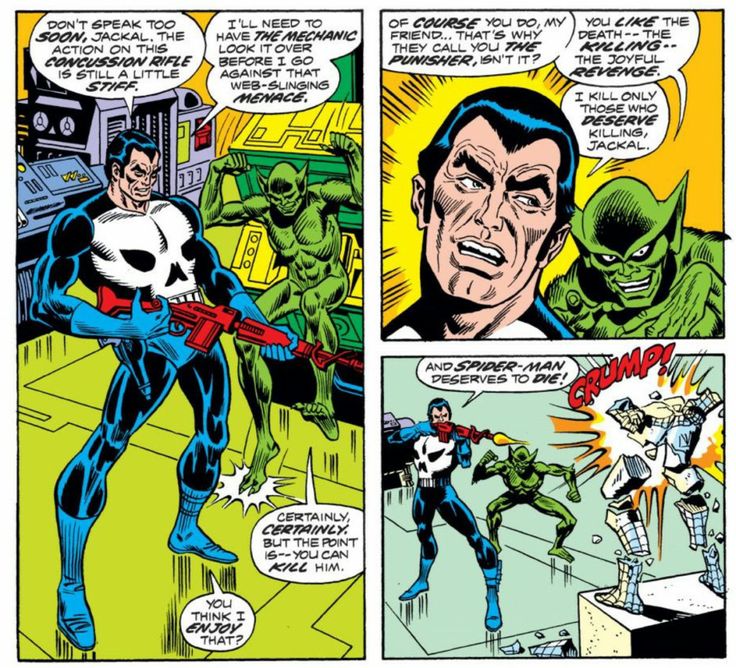
Clik here to view.
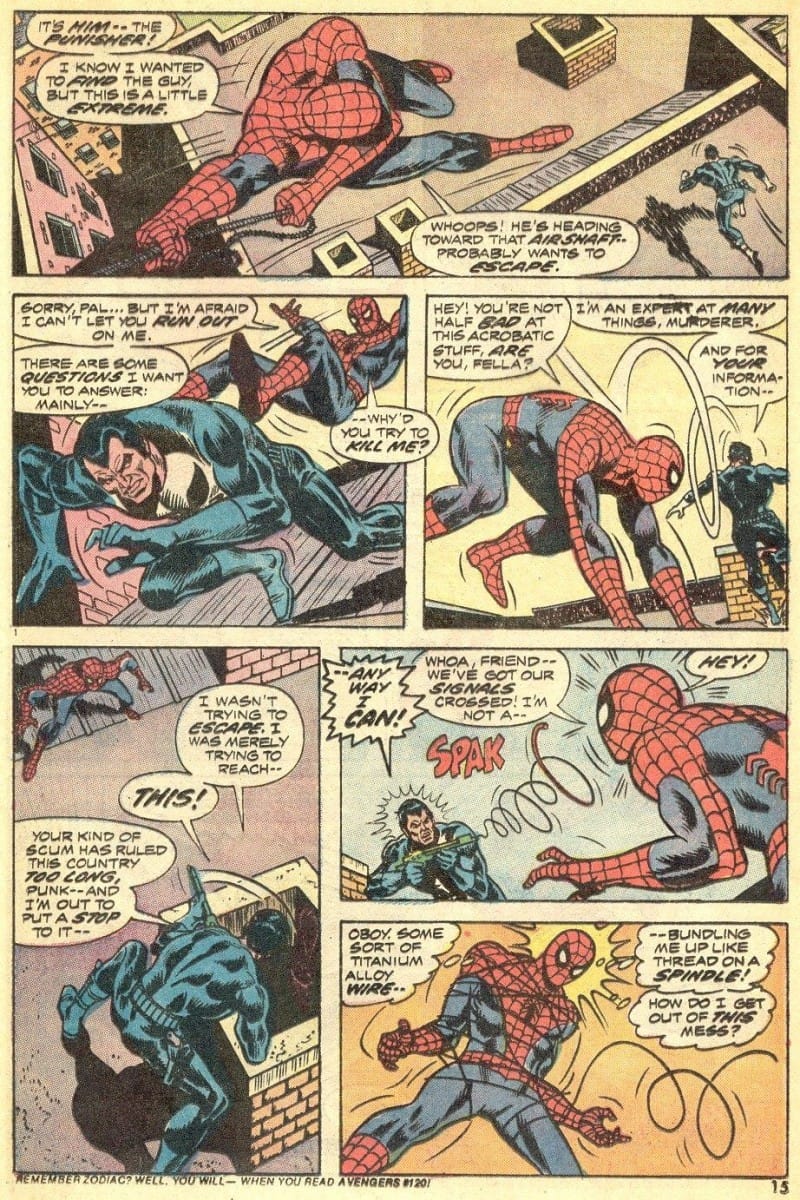
The Punisher was essentially a villain when he first showed up in The Amazing Spider-Man #129 in 1974. Accused of killing Norman Osborn, the wallcrawler himself was the Punisher’s target in his first appearance. The Punisher was in league with Spidey nemesis the Jackal and showed no compunction about killing lawbreakers without due process. But he did evince regret and anger when he learned that the web-slinger wasn’t actually a murderer.
When the character’s backstory was revealed, readers saw how the deaths of his family from crossfire during a mafia shootout sparked a lifelong obsession with delivering his own brand of vigilante justice. Over the next decade, Frank Castle showed up as a random second-tier character in stories featuring various other characters. That all changed in 1986, when he was the headliner of a five-issue miniseries. The tautly executed series by Steven Grant and Mike Zeck showed Castle taking on a vast criminal network in increasingly violent fashion, much like Death Wish, Dirty Harry and other action movies of the late 1970s and 1980s.
The zeitgeist of the times played a large part in the character’s rise to prominence. An economic downturn, hysteria over increasing drug use (specifically crack cocaine) and fears about superpredator criminals made Americans more nervous than ever about violent crime. The sense of cultural malaise that wafted through the 1980s made heroes who shot first and asked no questions ever a dead-on power fantasy. So when the Punisher reappeared in that miniseries, he was presented as an antihero. From there, he became the star of multiple ongoing titles and special projects. Creators vacillated between presenting the Punisher as either a man on the brink of insanity or someone who was ruthlessly clear-eyed about the dysfunction of the American justice system.
Frank Castle was a bad guy in his first appearance, but the Punisher is most interesting when he’s juxtaposed against Marvel’s other superheroes. His solo adventures in the 1980s and 1990s tended to happen in their own little pocket realities that were more grounded than the rest of Marvel’s fictional universe. In these stories, the Punisher’s brand of justice was the only one available to balance the scales against the drug dealers, hired killers or other miscreants he was taking down. The massive success of The Dark Knight Returns shifted mainstream superhero comics towards a much darker tone. That shift, along with massive amounts of overexposure, probably contributed to the character falling out of favor in the early 1990s. The Punisher was revisited multiple times in standalone projects that tried to tether him to more fantastical concepts, like being a resurrected agent who hunted celestial beings from Heaven and Hell. Coming from the Marvel Knights and Max imprints, the Punisher revivals of early 2000s—done by the Preacher team of Garth Ennis and Steve Dillon— stripped away any mysticism and focused on a cynical, comically bleak version of the character. Theirs was a Punisher with little angst, one who punked out Spider-Man and Daredevil in embarrassing ways.
Clik here to view.
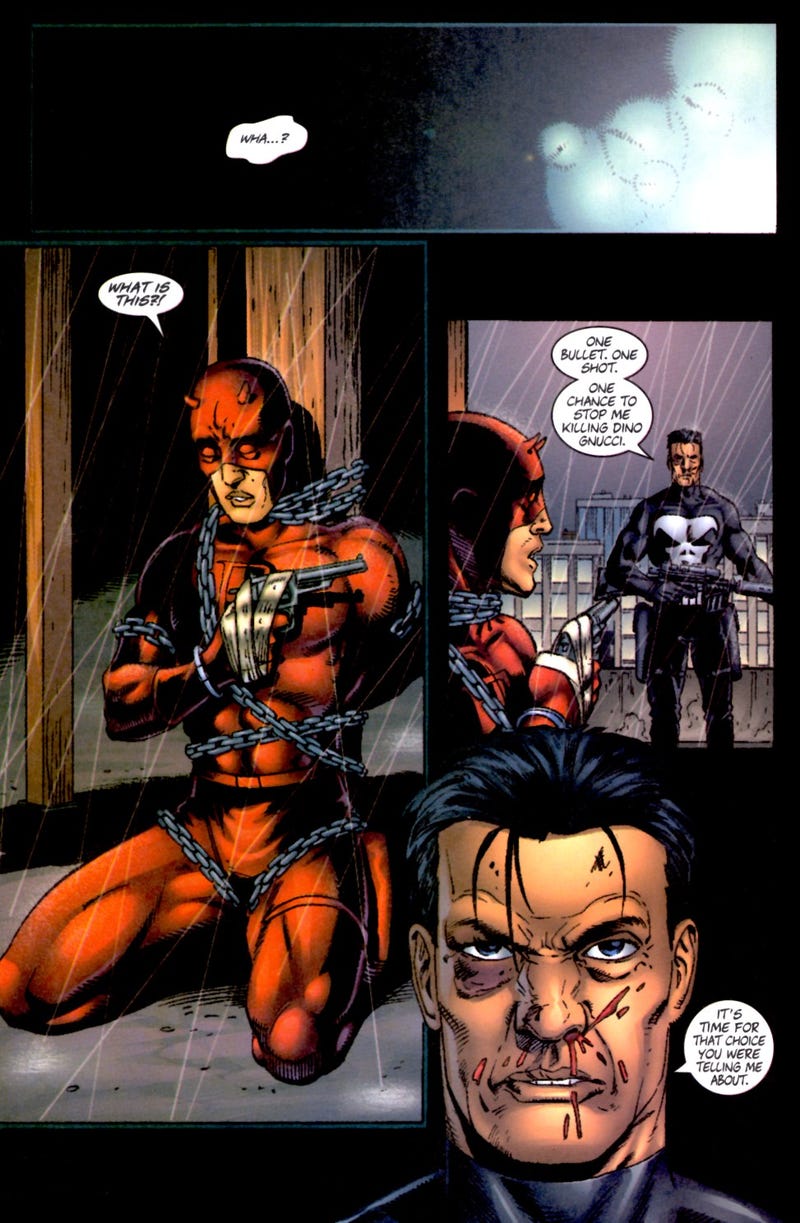
Clik here to view.
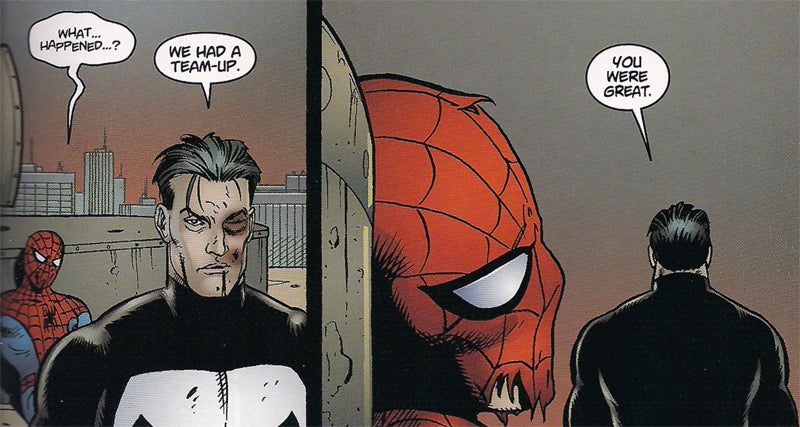
Since then, the Punisher’s had a few more solo titles, which ramped up the level of violence in his war on crime. His most recent highlights have been in plotlines that contrast the Punisher with, say, Captain America. Interactions like these—as seen in the recent Omega Effect crossover with Spidey and Daredevil—highlight what makes him unique.
Clik here to view.
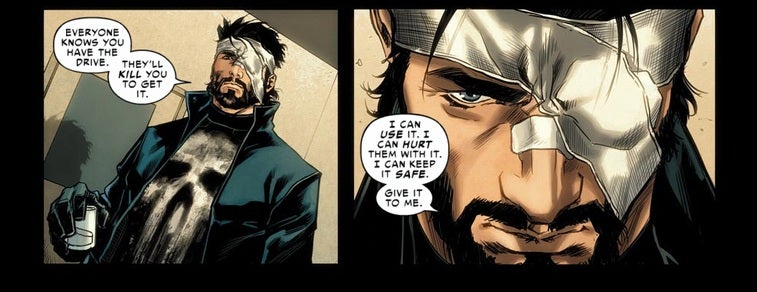
Clik here to view.
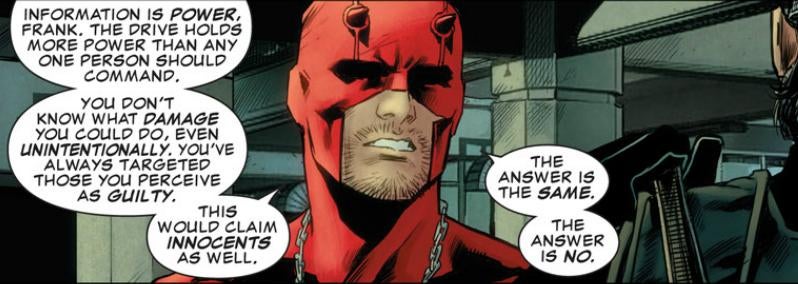
The Punisher’s being written less as a vicarious stand-in for readers fed up with it all and more like a semi-tragic character who’s toxically committed to a bloodthirsty vision of justice. He’s still unconscionably brutal but seemingly more methodical and less psychologically volatile. There’s a new Punisher series coming this year from writer Becky Cloonan and Steve Dillon. The premise will have Frank looking to stem the flow of a drug that can create new super-soldiers, which means he’ll be on the fringe of the more fantastic aspects of the Marvel Universe.
Frank Castle has been the subject of four major motion pictures over the decades. The first, a bland, by-the-numbers action vehicle starring Dolph Lundgren, is barely worth mentioning. The films that followed homed in closer to the righteous revenge-flick vibe of the character’s comic-book iterations. But, thanks to film rights being spread out all over Hollywood, those movies happened away from the flashy pyrokinetics of Marvel’s other superhero movies like the best comics versions of the Punisher. His upcoming spotlight on Daredevil season 2 looks like it’ll be operating in the best kind of shared landscape. He’ll be the foil to a more idealistic kind of crimefighting, but his slaughter of criminals will still seem like a seductively pragmatic solution to the evils of the world.